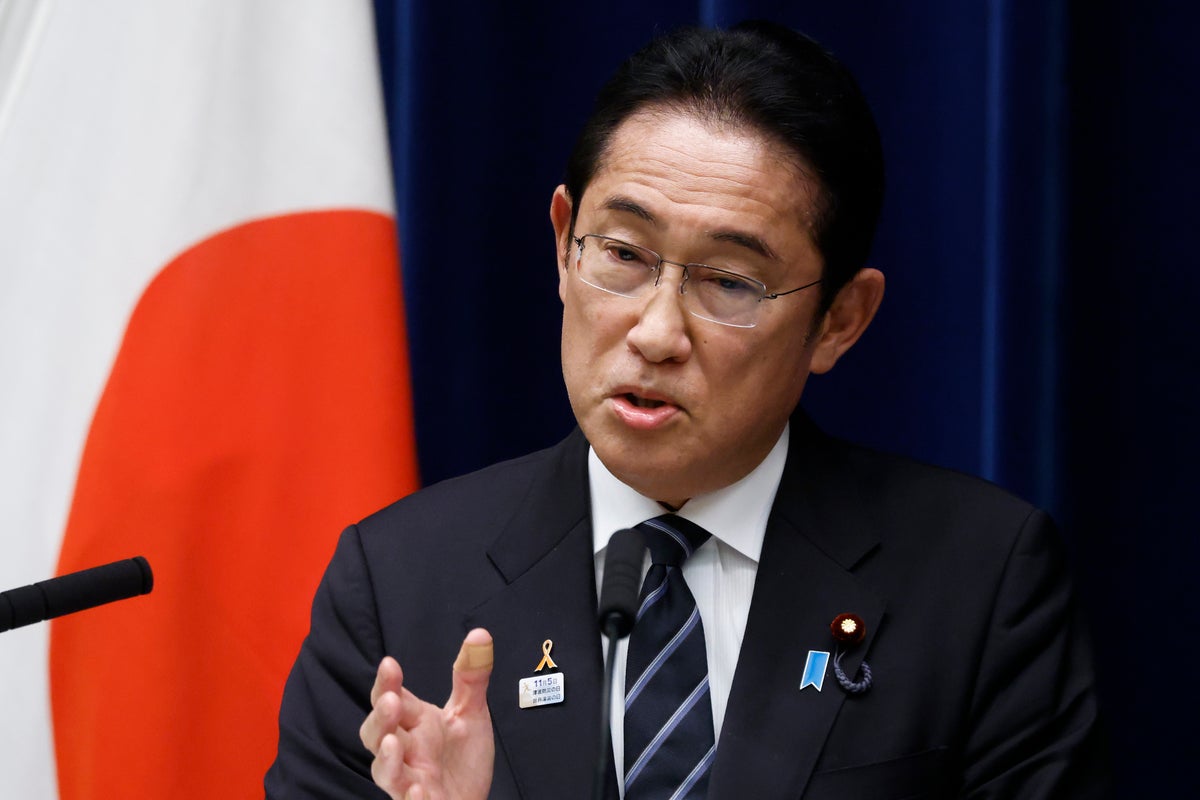
Japanese Prime Minister Fumio Kishida announced Thursday a stimulus package of more than 17 trillion yen ($113 billion) that includes tax breaks and benefits for low-income households, a plan criticized by some observers as populist spending that would worsen Japan’s national debt.
Kishida said his priorities are to overcome deflation and to put the economy on a growth track. Tax revenues will increase only when the economy grows and lead to fiscal health, he told a news conference, explaining the package endorsed by his Cabinet earlier in the day.
The government will fund the spending by compiling a supplementary budget of 13.1 trillion yen ($87 billion) for the current fiscal year.
“Japan’s economy is now on the brink of exiting from deflation. It would be more difficult to do so if we miss out this chance, ” he said. “I’m determined to boost the disposable income, to lead to expanded growth and to create a virtuous cycle.”
Pay hikes have yet to outpace inflation, Kishida said, noting that as a key challenge.
The package includes a temporary tax cut of 40,000 yen ($266) per person from next June and 70,000 yen ($465) payouts to low-income households as well as subsidies for gasoline and utility bills.
All combined, the plan is estimated to boost Japan's gross domestic product by about 1.2% on average, according to a government estimate.
Last year, his government already earmarked a nearly 30-trillion yen ($200 billion) supplementary budget to fund an earlier economic package aimed at fighting inflation.
Takahide Kiuchi, executive economist at the Nomura Research Institute, said the package's effect on the economy will be limited because temporary tax cuts and payouts tend to go to savings. Such measures won't change consumer behavior and will have limited impact on the mid- to long-term economy, he said.
Kiuchi said the latest measures look like “an attempt to please everyone.” The government earlier called for “normalizing” the increased spending during the pandemic that worsened Japan's government debt, but the economic package seems to be a quick reversal of the policy, he said.
Opposition lawmakers have questioned the use of tax cuts as inflation-relief measures, partly because it takes time to legislate them.
Akira Nagatsuma, policy research chairperson of the main opposition Constitutional Democratic Party of Japan, accused Kishida of suddenly switching to tax cuts to cover up his perceived support for a tax increase to fund surging defense spending over the next five years, under a new security strategy adopted in December.






